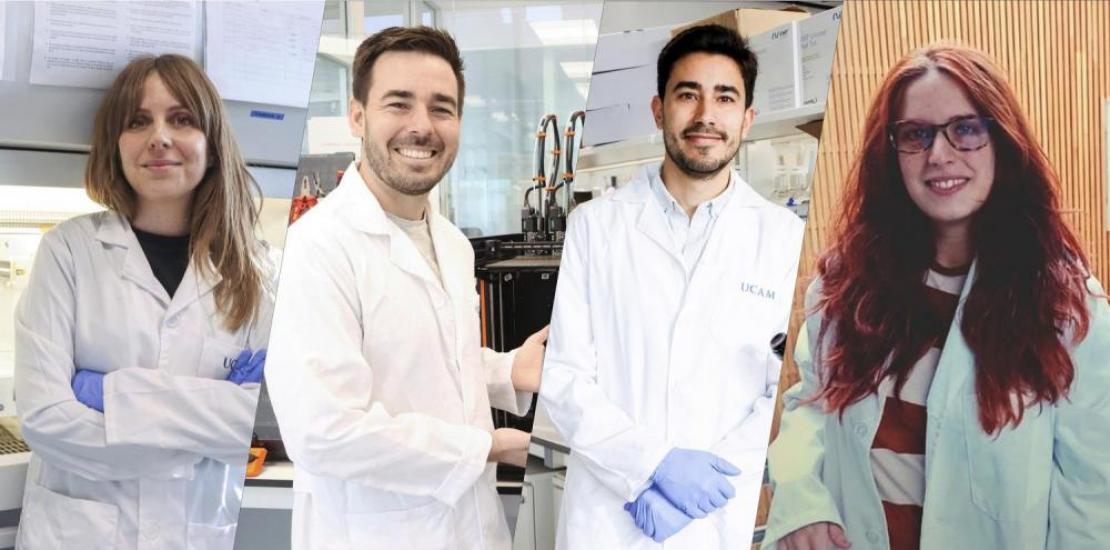Young UCAM researchers are stepping up their game
They have won four of the nine grants awarded for the generation of new scientific leadership, financed by the Fundación Séneca of the Region of Murcia.
Four young researchers from the Universidad Católica de Murcia have been selected to benefit from the grants requested for the development of projects within the framework of the Jóvenes Líderes en Investigación (Young Leaders in Research) programme, funded by the Fundación Séneca. The aim is to support young PhDs in their transition to leading research groups, helping them to build teams and develop new, innovative and high-potential fields of study.
Colon cancer treatment
In the area of health, UCAM researchers have been assigned to two projects in this call. On the one hand, Ana Mª Hurtado will lead a project that seeks to develop personalised vaccines for the treatment of colon cancer. To do so, she will use organoids derived from patient samples as advanced preclinical models, and will design vaccines based on neoantigens, specific molecules of the tumour, with the aim of boosting the immune response and offering therapeutic alternatives to patients who do not respond to conventional treatments.
Meanwhile, Dr Rubén Rabadán will focus his research on the development of a new model of human muscle fibres and the study of the PURA gene, whose alteration is related to the PURA syndrome, a rare genetic disorder that affects the motor skills of these patients. The project aims not only to advance regenerative biology and explore new applications in transplantation and therapeutics, but also to understand how changes in the PURA gene can influence the muscle level, thus improving knowledge and the development of new treatments.
Sensors for plants
Researchers Águeda Molinero and Daniel Rojas, from the UCAM-SENS Chemical Sensors Unit, have also been awarded two projects focused on the development of innovative strategies in their field. Águeda Molinero will lead the PlantChemSens research, which aims to design a new analytical tool based on microneedle technology for the non-invasive monitoring of chemical changes in crops subjected to stressful situations, such as drought or certain diseases. This tool provides a real-time view of the state of the crop and aims to boost precision agriculture.
Researcher Daniel Rojas will lead the Sens3D project, which focuses on the development and application of new materials compatible with 3D printing techniques for the manufacture of potentiometric sensors. This project aims to overcome one of the main obstacles existing to date: the limited variety of available materials compatible with 3D printing in the manufacture of sensors, which will represent a significant step towards their democratisation and digitisation.




